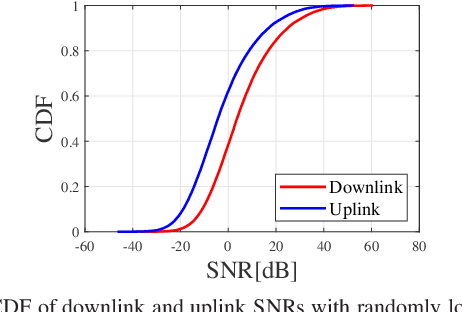Improving Wireless Federated Learning via Joint Downlink-Uplink Beamforming over Analog Transmission
Paper and Code
Feb 04, 2025


Federated learning (FL) over wireless networks using analog transmission can efficiently utilize the communication resource but is susceptible to errors caused by noisy wireless links. In this paper, assuming a multi-antenna base station, we jointly design downlink-uplink beamforming to maximize FL training convergence over time-varying wireless channels. We derive the round-trip model updating equation and use it to analyze the FL training convergence to capture the effects of downlink and uplink beamforming and the local model training on the global model update. Aiming to maximize the FL training convergence rate, we propose a low-complexity joint downlink-uplink beamforming (JDUBF) algorithm, which adopts a greedy approach to decompose the multi-round joint optimization and convert it into per-round online joint optimization problems. The per-round problem is further decomposed into three subproblems over a block coordinate descent framework, where we show that each subproblem can be efficiently solved by projected gradient descent with fast closed-form updates. An efficient initialization method that leads to a closed-form initial point is also proposed to accelerate the convergence of JDUBF. Simulation demonstrates that JDUBF substantially outperforms the conventional separate-link beamforming design.
 Add to Chrome
Add to Chrome Add to Firefox
Add to Firefox Add to Edge
Add to Edge